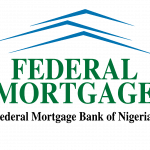The Securities and Exchange Commission has entered into a strategic partnership with the Federal Mortgage Bank of Nigeria to develop a comprehensive non-interest mortgage framework aimed at addressing Nigeria’s housing deficit, which is estimated at more than twenty-eight million units.
The initiative, unveiled in Abuja, seeks to give millions of Nigerians who have been excluded from conventional interest-based mortgage systems a pathway to homeownership through ethical, Sharia-compliant financing structures.
The Commission explained that the collaboration will unlock long-term, sustainable funding for the housing sector by creating a regulatory foundation for Sukuk issuances and other non-interest capital market instruments capable of supporting large-scale mortgage products. It noted that a well-structured non-interest mortgage model would strengthen market integrity, protect investors and ensure stability across the financial system while widening access to home financing.
The Mortgage Bank said the move directly addresses a major limitation within the National Housing Fund, where many Nigerians, especially those who avoid interest-based products for religious reasons, have been unable to participate.
It described the partnership as a deliberate effort to create mortgage options that are ethical, inclusive and financially viable, adding that homeownership should not be out of reach for citizens simply because conventional mortgages do not align with their beliefs.
Industry experts have welcomed the initiative, describing it as overdue and capable of opening the door to a large pool of prospective homeowners and investors who have remained outside the formal housing market.
They believe that a transparent, well-regulated model could significantly accelerate housing delivery nationwide and support broad-based economic activity.
Non-interest mortgage financing differs from traditional lending by replacing interest with asset-backed structures, risk-sharing models and equitable returns.
The framework under development covers partnership-based ownership structures, lease-to-own arrangements and cost-plus property financing, all of which allow households to acquire homes without interest-bearing obligations.
By promoting these alternatives, the new mortgage system is expected to stimulate construction activity, create employment opportunities and push financial inclusion forward.
The Commission and the Mortgage Bank emphasized that the rollout of the non-interest mortgage scheme will not only bridge housing gaps but also contribute to national development by expanding access to dignified shelter and supporting the broader economic reform agenda.










